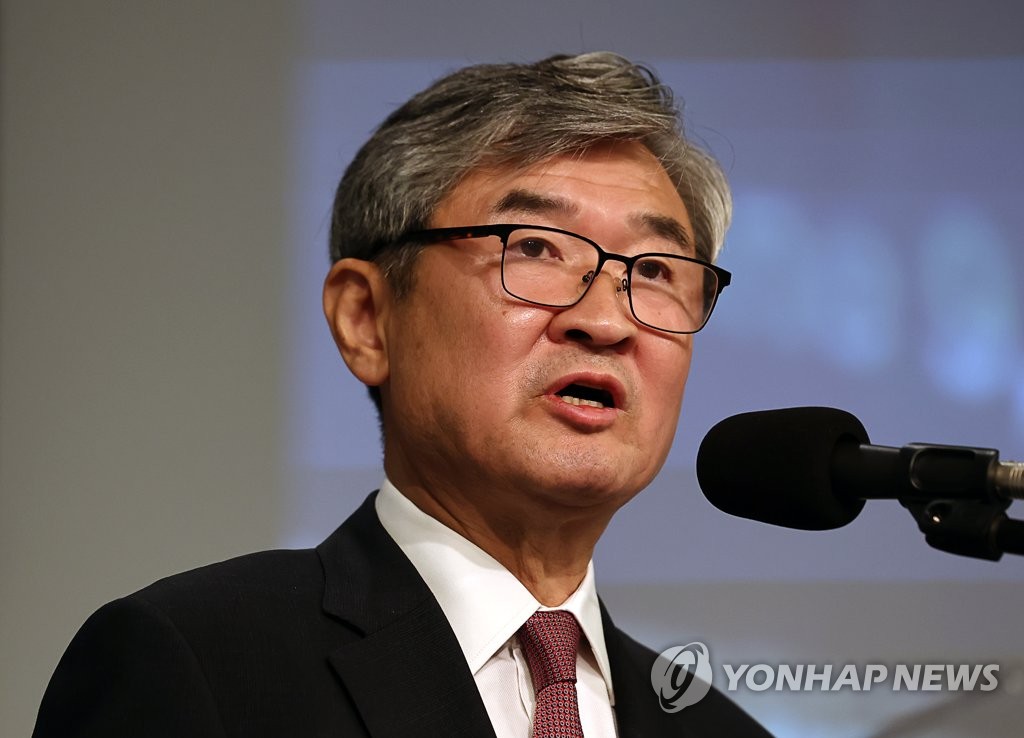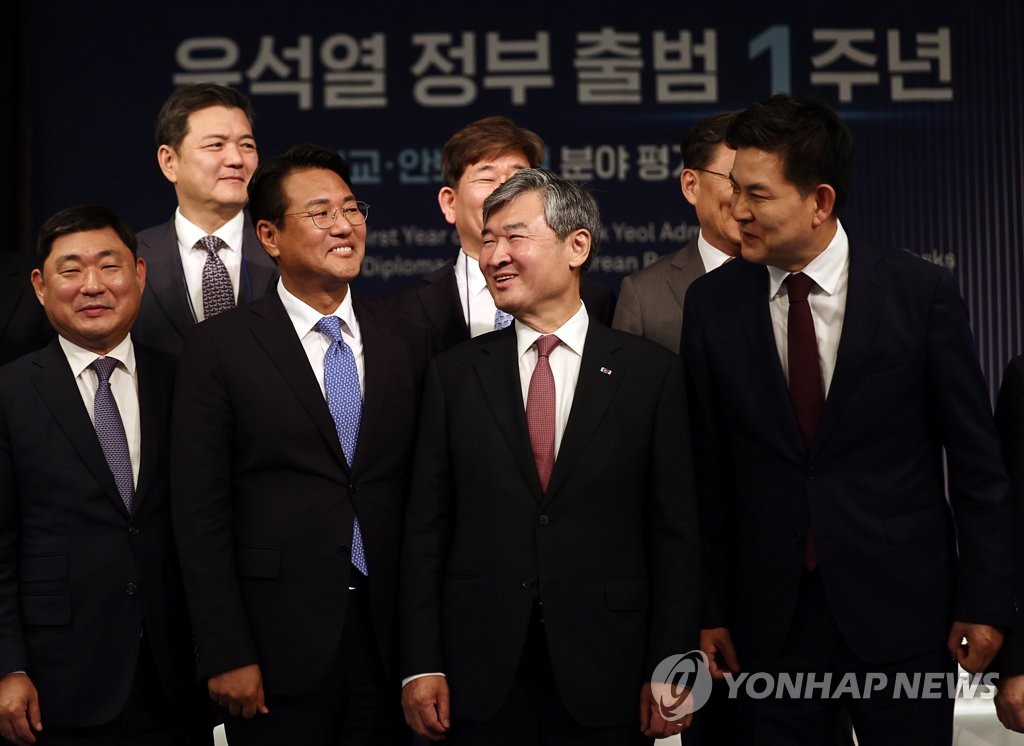- California Assembly OKs highest minimum wage in nation
- S. Korea unveils first graphic cigarette warnings
- US joins with South Korea, Japan in bid to deter North Korea
- LPGA golfer Chun In-gee finally back in action
- S. Korea won’t be top seed in final World Cup qualification round
- US men’s soccer misses 2nd straight Olympics
- US back on track in qualifying with 4-0 win over Guatemala
- High-intensity workout injuries spawn cottage industry
- CDC expands range of Zika mosquitoes into parts of Northeast
- Who knew? ‘The Walking Dead’ is helping families connect
S. Korea aims to form ‘healthy’ relationship with China: security adviser
South Korea’s national security adviser said Friday the country aims to establish a “healthy” relationship with China, stressing that “mutual respect” should be the foundation for such bilateral ties.
National Security Adviser Cho Tae-yong made the remarks at a forum a day after Chinese Ambassador to Seoul Xing Haiming expressed his discontent with South Korea’s diplomacy with the U.S. during a meeting with opposition leader Lee Jae-myung.
During the meeting, Xing called for Seoul’s support for Beijing’s “One China” principle, claiming that Seoul-Beijing relations have recently faced “external challenges.”
“Relationships between countries should be based on mutual respect,” Cho said in a keynote speech for a conference to assess the first-year diplomacy and security policy of the Yoon Suk Yeol administration.
“We will form healthy South Korea-China relations through a ‘confident’ diplomacy that is befitting to the increased national power of the Republic of Korea and the expectations of the people,” he said.
Cho also hinted the government may protest Xing’s remarks through its diplomatic channels. When asked about what he meant by mutual respect, Cho told reporters that the foreign ministry will “take good care” of the issue.

Cho, meanwhile, lambasted North Korea’s nuclear and missile developments as the “most immediate” and “substantive” security threat that has also jeopardized the lives of the North Korean people.
The conservative Yoon administration has taken a stern stance in dealing with the secretive regime’s human rights violations since taking power in May last year.
“While the North Korean regime is carried away with its missile and nuclear developments, its people are suffering from the worst economic crisis and human rights violations,” Cho said, noting that Pyongyang’s botched attempt to launch what it claimed to be a satellite-carrying rocket cost what could have fed its people for 10 months.
The security adviser called for having a “clear perception” on which country is an “enemy” that threatens Seoul’s survival and security and which country will stand with Seoul against such threats.
“To guard universal values, like freedom, human rights and rule of law, as well as an international order, based on principles and rules, our government will cooperate with other countries that can share values and pursue shared interests,” he said.
Against such a backdrop, Cho said that Seoul will move to further advance its strategic alliance with Washington. He also assessed that the recent move to mend ties with Tokyo, stemming from the growing need for bilateral cooperation, is making swift developments.
Principal National Deputy Security Adviser Kim Tae-hyo reaffirmed the importance of freedom as a key policy goal.
“In terms of diplomacy in the Republic of Korea, the value of freedom is not simply an issue of style or personal preference but a matter of decisive interest and survival,” Kim said in the luncheon address, stressing that only countries with freedom can achieve technological and economic developments.












